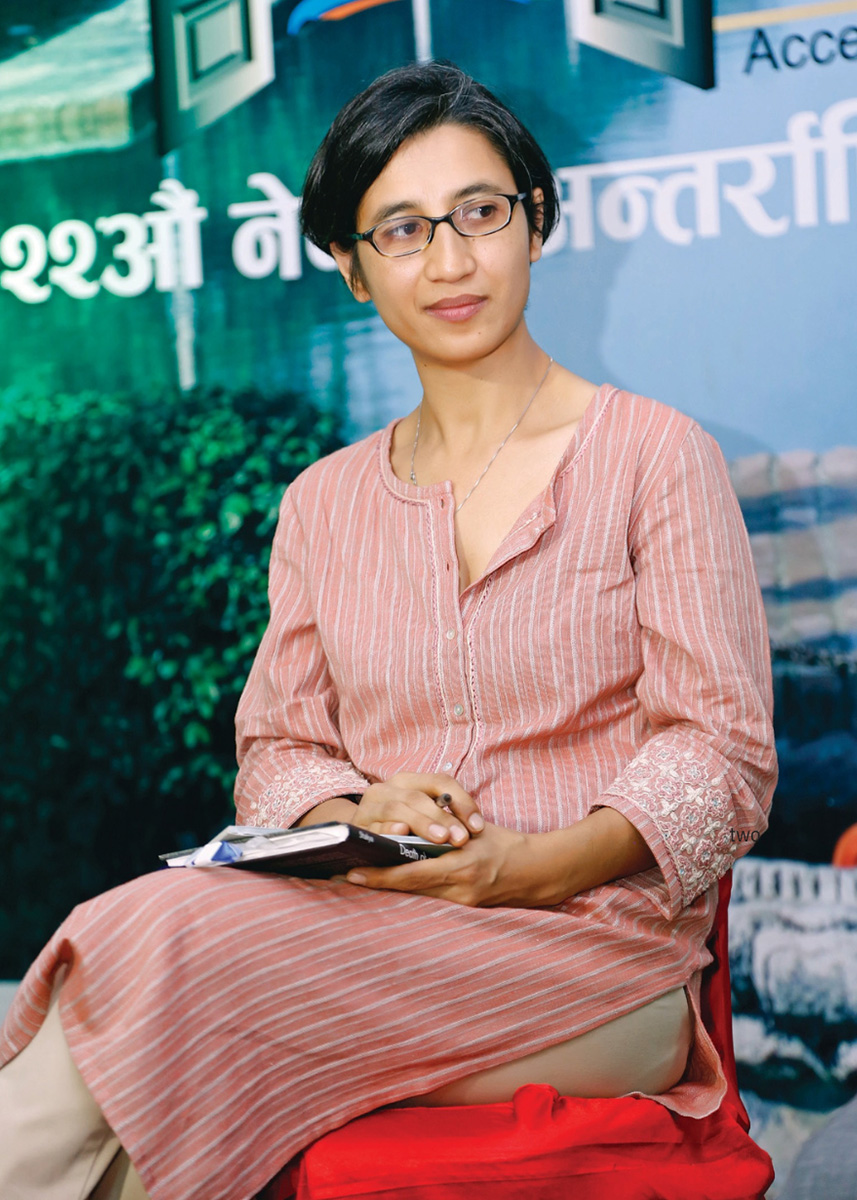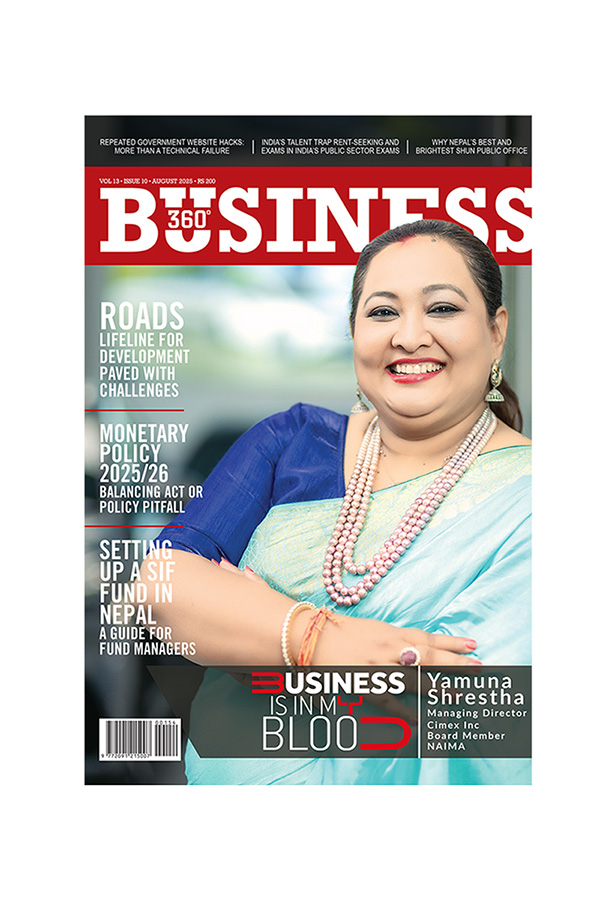
Mallika Shakya is an economic anthropologist working on socio-economic, labour movements and trader communities. She is currently Assistant Professor in the Department of Sociology at South Asian University, New Delhi. She studied development studies in University of Glasgow before doing a PhD in anthropology and development studies in London School of Economics and Political Science (LSE). She was also a Senior Lecturer in the Department of Anthropology and Archaeology in University of Pretoria, South Africa for two years after holding a research position at the Queen Elizabeth House in University of Oxford. She has worked for the World Bank’s International Trade Department from 2004 till 2012 during which she counselled governments in East and South Asia, the Middle East, Eastern Europe and Africa on export competitiveness. B360 interviewed Mallika Shakya about her new book, Death of an Industry and her views on the measures the government and policymakers should take to fast forward development work in Nepal.
Can you tell us about yourself and your book Death of an Industry?
I am an economic anthropologist and this is a book that emerged from my PhD dissertation, a project that began in 2001 and completed in 2008. I did two other sets of fieldwork and analyses before those materials could be written up eventually as a book.
I have long been concerned about development in Nepal and I have come to realise development – even industrial development – is a deeply interdisciplinary field. I am hoping that a wide range of practitioners, policymakers and general readers who are interested in industrial development and democracy in Nepal will read my book.
What kind of research did you conduct before and during writing this book?
For an academic book like this one, research is the key to writing. I conducted ethnographic fieldwork on garment shop floors for two years before the Multi-Fibre Arrangement (MFA) expired in 2004. After this, I engaged extensively with the World Bank for over seven years on its industrial policy advise for countries in East and South Asia, Eastern Europe and Africa. Finally, I conducted fieldwork on workers’ union and social movements for democracy in Nepal as the last tranche of my fieldwork. The book triangulates data from these three segments of my research.
“New generation policymakers should have been able to build more diverse and more effective alliances within the country through which to demand more context-specific technical assistance from international organisations. Policymakers should also have worked to hold these organisations accountable for the advice given and work conducted when those generated no results, or worse, when the results were adverse”.
Author, Mallika Shakya[/caption]
How does political stability of a country affect its industrialisation?
At one level, during my early fieldwork in 2002-2004, I recall how frequently consignments of garment would “go air” because the highways had been blocked due to the Maoist insurgency. This left several factories dead. At another level, until the new constitution got promulgated, the national focus and that of the national leaders and policymakers were squarely on militarism and politics. Development, including industrial development, got sidelined in those years. I hope Nepal can make up for the time lost and catch up in the years ahead.
In an interview, you said that post World War II, while other countries have taken leapfrog in development, Nepal got left behind. Could you expand on that?
I have felt discouraged by how superficial our engagement has been so far on economic and industrial development. Not only that the old generation policymakers who are not familiar with the culture of work in international aid organisations like the UN, the ADB and the IFIs (the World Bank and IMF) but even the young generation policymakers who should have been more up-to-date on the latest policy discourses in these organisations are not doing enough to challenge the generalist and superficial advice we often receive from these organisations. At least the new generation policymakers should have been able to build more diverse and more effective alliances within the country through which to demand more context-specific technical assistance from these organisations. Those policymakers should also have worked to hold these organisations accountable for the advice given and work conducted when those generated no results, or worse, when the results were adverse. I hope my book will nudge the policymakers to reflect better on the current situation of our engagement with international organisations on industrial development.
How would you compare Nepal’s economy with those countries you may have worked or researched in?
We have unique opportunities and unique challenges. Generalist models of development will probably not work for Nepal as has been the case in the past several decades. That is why our trajectory to (industrial) development should be an original one, and we should be able to challenge the first world hegemony of what is understood by development and ways of achieving them.
At your book launch and discussion event held during Nepal International Book Fair, long time Nepali Congress member, political analyst and columnist Puranjan Acharya said that your book is a discussion topic in itself. What are some of the discussion topics you hope will arise from the book?
I found Mr Puranjan Acharya’s observations extremely insightful. I certainly thank him for reading my book at such short notice and for coming out to support a first-time author. He recalled his own personal experiences involving some of the garment people he knew himself, and considered my writing relevant in relating to those stories. I am also most thankful to him for underscoring what is central in my book - the public bureaucracy in Nepal has not been democratised which is why a large demographic segment belonging to the garment ecosystem found it impossible to seek help or empathy from the public bureaucracy. This is a worrying deficit in country that calls itself democratic, and even revolutionary on certain grounds. I do hope that this aspect of deliberative democracy will get some attention as we go about deepening democracy in our public institutions under the new constitution.






